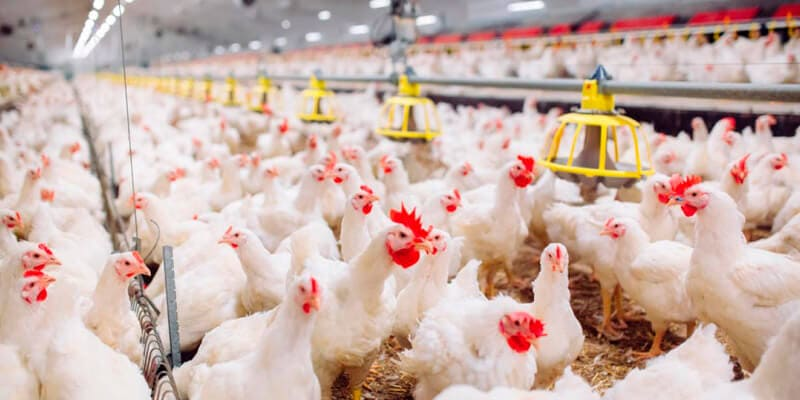S. Africa’s Competition Commission examines poultry value chain

The March 2023 Essential Food Price Monitoring Report published by South Africa’s Competition Commission has provided insight into the country’s poultry value chain, highlighting the role of poultry as a staple in the South African diet.
The Competition Commission in South Africa is a statutory body created by the government to investigate, control, and evaluate business practices to achieve equity and efficiency in its economy. Since the pandemic began in March 2020, it has been monitoring essential food prices, and its most recent report has highlighted the poultry sector.
Poultry is an essential food, notes the report, highlighting the impact of price increases on local consumers. “As chicken is a staple product, chicken price increases are highly regressive since the poorest 10% of households spend up to 7% of their total expenditure on chicken products, compared to 1% spent by the wealthiest 10% of households.”
The local market has seen a shift away from beef and lamb and toward chicken, which is a less expensive source of protein, to “ease budgetary constraints”.
According to the report, bone-in chicken cuts are the product of choice for South African consumers, accounting for 60% of total chicken demand.
South Africa’s local poultry industry is described by the Commission as being highly concentrated and dominated by vertically integrated firms, noting that the top 2 producers make up 50% of the market.
The report notes that such a market structure raises concerns that these firms could “use their market power to achieve anti-competitive prices”. A recent USDA report on the matter described the situation that vertically integrated businesses produce significant volumes of feed for internal consumption and sell the excess to non-integrated poultry farmers.
The major producers of broiler feed are primarily part of companies that also produce poultry, creating what the Commission calls a “potential concern since it grants the vertically integrated firms a degree of influence over their unintegrated rivals, which may be abused to the benefit of their downstream broiler and chicken product business”.
According to the Commission, South Africa’s poultry sector enjoys high levels of trade protection, and in March 2020, tariff rates on imported bone-in cuts jumped to 62%. This is intended to insulate the local industry from unfair trade competition while supporting its growth. However, it says that imports also play a role in constraining local prices.
Tariffs have pushed imported goods to be consistently more expensive than local producer prices, says the report, adding that it has explored the influence that this has on poultry prices for consumers.
Considering the impact of the suspension of anti-dumping duties on Brazil and 4 EU countries, the report concludes that “the suspension of the tariff appears to have had an immediate impact on consumer prices, which fell nearly 4.9% while the post-duty price fell by 26.5%. These simultaneous declines suggest that, as intended, the lower prices of imports were passed through to consumers.”
Read also
Wheat in Southern Brazil Impacted by Dry Weather and Frosts
Oilseed Industry. Leaders and Strategies in the Times of a Great Change
Black Sea & Danube Region: Oilseed and Vegoil Markets Within Ongoing Transfor...
Serbia. The drought will cause extremely high losses for farmers this year
2023/24 Safrinha Corn in Brazil 91% Harvested
Write to us
Our manager will contact you soon



